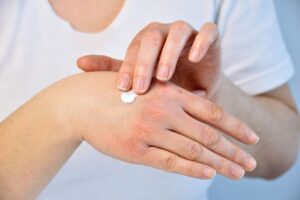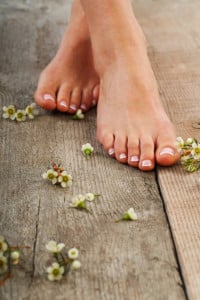Do you have itchy, damaged, or dry winter skin? Harsh winds and cold air do not contain anywhere near the moisture of humid summer air. And your skin will show a lack of moisture with new wrinkles and creasing. The reason your face hurts from cold or windy weather is that it is being damaged by cold winds outdoors, and then it is further dried out with overly dry heated air indoors. And this will only get worse due to predicted extremes in winter weather caused by global warming.
A Skincare Regimen to Prevent Dry Winter Skin
The good news is that it is much easier to protect your skin than to stop global warming. Consider the advice that follows as a comprehensive self-defense program to save your skin from the ravages of extreme conditions. This serious regimen will help you protect, repair, and preserve your skin, avoiding dry winter skin. If you follow this advice, you will make it through winter with little or no damage caused by a lack of moisture. But only if you are diligent and persistent and use products you can trust!
1. Use a hydrating cleanser at night (with a moisturizing cream).
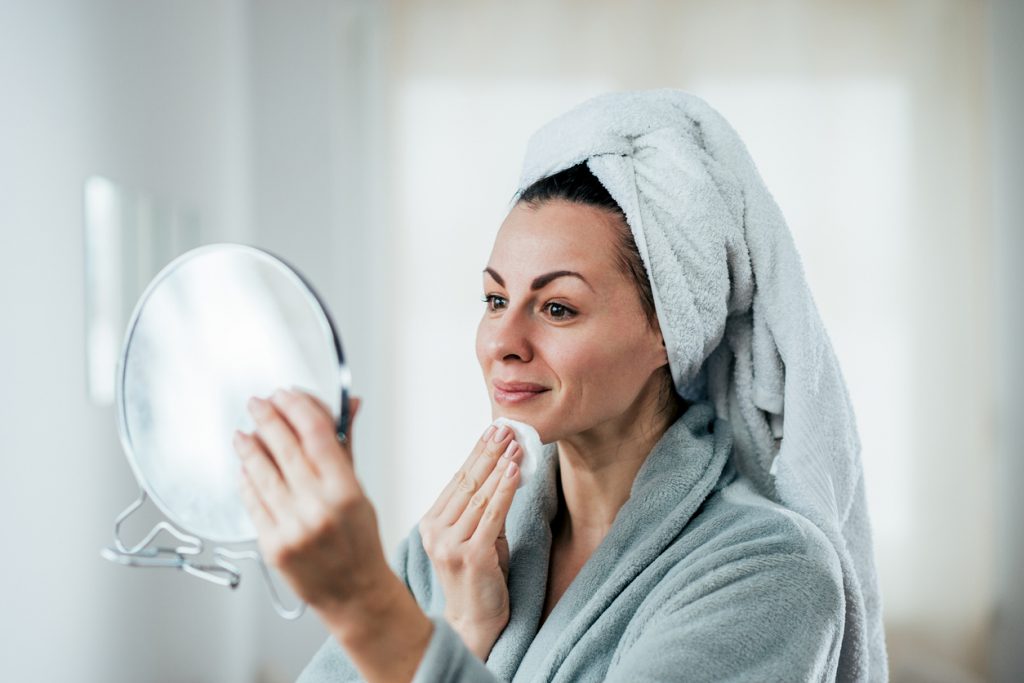
Avoid bar soap and foamy cleansers, especially during the winter. In fact, if your cleanser foams during the winter, you probably want to avoid it. A gentle cleanser that is free of sulfates is also a good choice. Also, try using face oils such as argan, avocado, or sunflower; add about 20 to 30 drops to your cleanser and shake it up. Your skin will benefit from the extra hydration, and the outer layers will be cleaned without stripping off the valuable moisture below the surface.
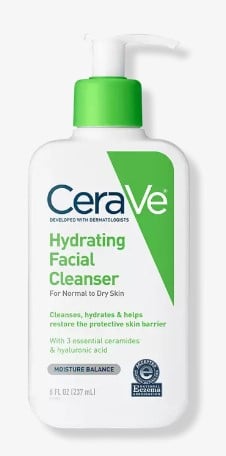
Try washing your face only once a day at bedtime because it’s best to clean your skin of all the pollutants and makeup before you go to bed. Then nourish with moisturizers to help your skin repair itself while you sleep. And don’t wash your face in the morning; let your skin’s natural oils surface and leave them in place. Do not strip them away in the morning with cleansers or toners. And a side benefit is that your skincare budget will benefit from one facial wash daily.
2. Avoid toners with alcohol.
If your skin is very dry, you do not need to use a toner this time of year. Just rinse well with warm water. If you like the feel of a toner, avoid those that have alcohol. While some select alcohols, such as Cetyl, Cetearyl, and Stearyl, can be somewhat hydrating, be careful because many alcohols are just not suitable for the face. If your toner has SD alcohol 40, ethanol, or isopropyl alcohol, it might be best not to use them at all. These will dry the top layers of the skin and dehydrate even oily skin types. There is also the likelihood that these alcohols can cause inflammation. Try an Aesop toner instead.

3. Embrace oils.

Nourishing oils such as argan, avocado, grape seed, kukui, emu, marula, and moringa are all amazing natural sources of moisture. They are absorbed into the skin and are non-comedogenic (will not clog pores or cause breakouts). Unlike the oils of the past (namely mineral oil, which is heavy and will often clog pores), these oils are more viscous and penetrate easily.
The nourishing oils today can be used alone, over serums, or even patted into your foundation mid-day. Just pat a couple of drops into the skin, and it will absorb and give you an added glow and protection, especially around your eyes and mouth. Use oils and moisturizers where you are dry. Avoid using oils down your nose if you get a shine mid-day. You do not need to moisturize oily parts of your face; that is counterproductive.
Some of our favorite super oils include:
- Avocado: It calms itchy skin, heals and hydrates, shields skin from ultraviolet radiation, and soothes sunburn. It contains vitamin E, beta carotene, vitamin D, protein lecithin, and essential fatty acids that support healing.
- Grapeseed: It is a quick-drying oil, can decrease oiliness in the skin, and works as an everyday moisturizer for acne-prone skin. It is also anti-inflammatory, promotes moisture retention, and improves elasticity and softness.
- Argan: It soothes inflammation, nourishes skin, promotes wound healing, elasticity, and hydration as well as provides a barrier against harmful pollutants. It also promotes elasticity and skin hydration.
- Emu: It is primarily made up of fat, which is excellent for dry skin and decreased inflammation. Rich in fatty acids like omega-3, omega-6, and omega-9. It also contains vitamin A, which is an essential anti-aging skin nutrient. Plus, it has healing properties, especially for those with skin conditions such as rosacea or dermatitis.
- Marula: It is an antioxidant, anti-inflammatory, and collagen-enhancing protective. It strengthens the skin.
- Moringa: From the Moringa tree, often referred to as the Miracle Tree for its wonderful properties. It heals dry skin as it is rich in vitamins A and C. It also has anti-inflammatory benefits from vitamin E and helps improve the sagging of facial muscles. It contains antiseptic properties used to treat mild skin abrasions, bites, and sunburn and helps prevent the reoccurrence of blemishes.
As you can see, there are special properties to all of these oils. So, which one is best to use for dry winter skin? I prefer a mix of many wrapped up in one, like this Cocktail of Oils.
4. Add hyaluronic acid.
Hyaluronic is an excellent humectant that draws moisture and holds it into the skin. In fact, it contains 1,000 times more moisture than any natural substance, so any ingredient with hyaluronic acid is a good choice. However, make sure it is in the top 5 ingredients because if it’s somewhere at the bottom, it will not be as effective. Some choices to consider are Kiehl’s Hyaluronic Acid Super Serum or Cera Ve Hydrating Hyaluronic Acid Serum.
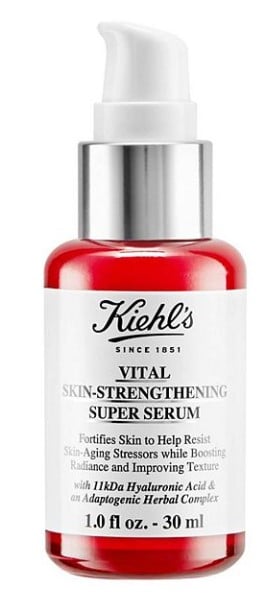
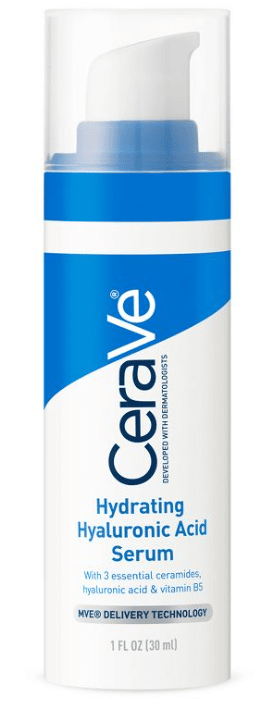
5. Use hydrating face sprays
Setting sprays have become popular in setting makeup. Some will just do that: “set” the makeup, but some will deliver hydration on the go.
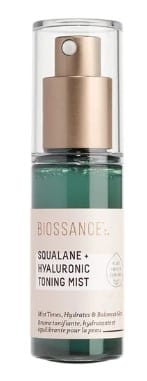
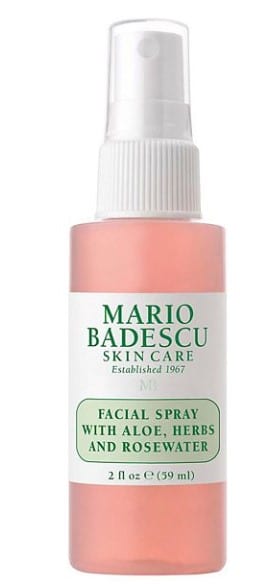
So embrace the cold weather and remember to layer your body and skin with protective ingredients. It will indeed protect you from dry winter skin!
Read Next:
The One Anti-Aging Skincare Ingredient You May Be Overlooking


